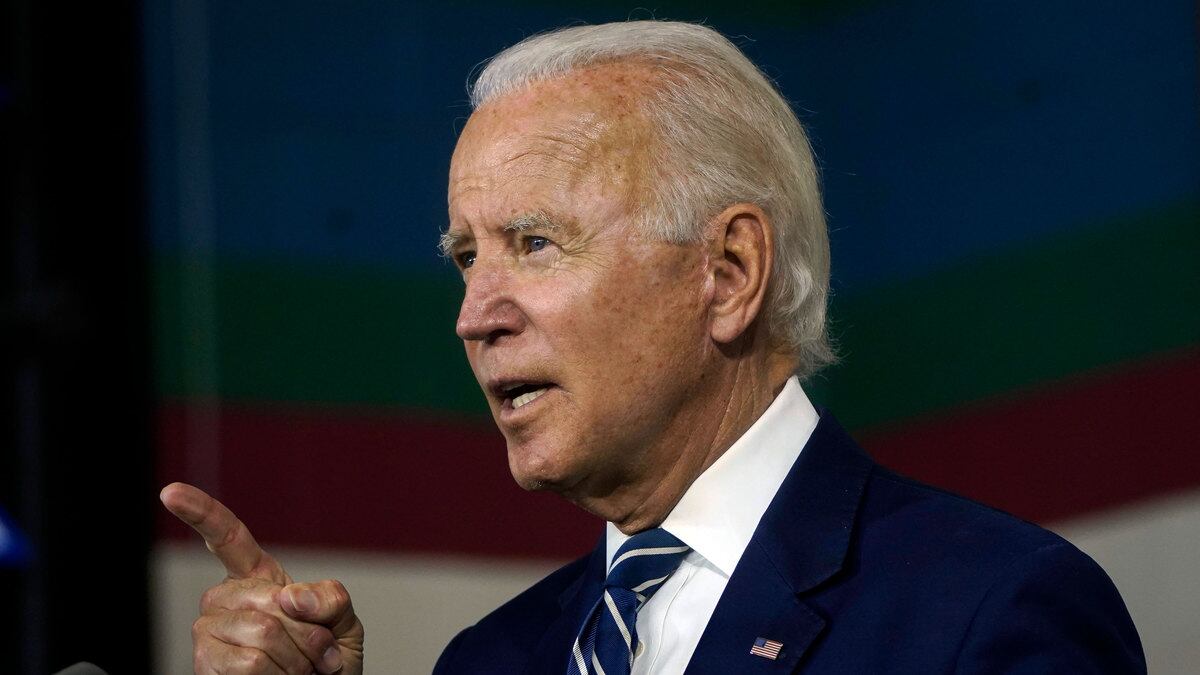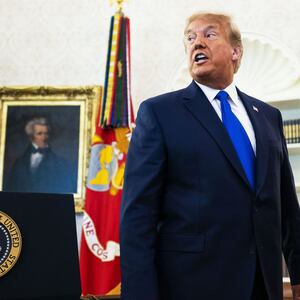Among the many millions the world over who rejoiced over Joe Biden’s recent victory over Donald Trump, few are happier than the political leaders and diplomats of our oldest allies. Trump seemed to take almost as much glee in denigrating them, and the values of the liberal world order they created with the United States, as he did in patting authoritarian adversaries on the back.
Joe Biden promises that he will re-invigorate America’s badly frayed relations with allies and partners. The president-elect and his secretary of state designate, Anthony Blinken, are seasoned internationalists who intend to restore America’s much diminished reputation in world affairs as a result of the Trump administration’s staggering incoherence and incompetence, and the failed wars in Afghanistan and Iraq.
Biden wants to restore America’s place in world affairs, as he put it recently, “at the head of the table.” Other nations will follow our lead, Biden wrote in 2017, “because they know America does not simply protect its own interests, but tries to advance the aspirations of all.”
ADVERTISEMENT
According to an increasingly influential cadre of foreign policy experts, President-Elect Biden would be well advised to tone down the rhetoric about restoring American leadership and focus instead on the more modest objective of partnering with allies and international institutions to meet the considerable world challenges of 2021 and beyond.
These experts, some of this nation’s most articulate and influential thinkers about world affairs, such as Stephen Walt, Barry Posen, and Andrew Bacevich, argue that policy-makers need to jettison the grandiose vision of America as a kind of moral beacon for the rest of the world, destined to lead less powerful and gifted nation states. Instead, they argue, Joe Biden should adopt a more modest view of America’s role in world affairs, and pursue a foreign policy marked above all by restraint.
In other words, they say, henceforth the United States should play a major, but not the leading role in international affairs.
Their strategy, sometimes called “offshore balancing,” calls for abandoning the effort to transform the world by expanding democracy where it’s not wanted; greater self-discipline in using the military to achieve political objectives; a more nuanced and constrained definition of American vital interests than currently obtains; and a candid recognition of the legitimacy of other powers’ national interests in the formulation of U.S. policy.
There are several variants of this core idea floating around out there. Stephen Walt of Harvard, perhaps the leading spokesperson for the “offshore balancing” school, argues in a recent essay in Foreign Affairs that American policymakers since the end of the Cold War have been transfixed by a “hubristic fantasy” that the United States is the world’s “indispensable nation,” in which they have “the right, the responsibility, and the wisdom to shape political arrangements in every corner of the globe.”
The results, says Walt, have been disastrous. Not all American interventions have been failures, but the major ones, in Somalia, Iraq, Afghanistan, and Libya, have been precisely that. The Global War on Terror has exacerbated Muslim militancy, not diminished it. The United States, writes Walt, needs to “abstain from crusades to remake the world in its own image, concentrating instead on maintaining the balance of power in a few key regions. Where possible, Washington would encourage foreign powers to take on the primary burden for their own defense… Diplomacy would return to its rightful place, and Americans would promote their values abroad primarily by demonstrating democracy’s virtues at home.”
Walt joins many other advocates of restraint in calling for the United States to withdraw all but token ground forces in Europe and the Middle East, and to reconfigure our alliances in both places to reflect a shift in the burden of providing regional security to local actors. The United States would remain largely “offshore,” ready to provide backup naval and air power in the event of a military crisis, but generally taking a more low- profile position than it has done since the end of the Cold War.
Walt would shift a large percentage of a smaller but still preeminent U.S. military to Asia, where it would seek to contain an increasingly assertive People’s Republic of China from threatening and bullying its neighbors, many of whom are either our allies (Japan, South Korea, Australia) or potential partners in resisting Chinese expansionism (Vietnam, Indonesia).
Barry Posen, a professor at MIT, suggests Washington should now focus tightly on three security challenges: preventing China from upending the balance of power in Asia, fighting terrorism, and limiting nuclear proliferation. Like Walt, he sees the reinvigoration of America’s beleaguered and underutilized State Department and the Agency for International Development as essential to regaining the leverage and respect in the world community it has lost as a result of its incessant military interventions, arrogance, and strategic blunders.
Andrew J. Bacevich, professor emeritus at Boston University and a retired U.S. Army colonel who served in Vietnam, would no doubt concur. In a series of sobering books going back to the first years of the War on Terror, he has argued eloquently that America’s grand strategy since the fall of the Soviet Union has been fueled by unbridled hubris, and relies too much on the use of military force to achieve unrealistic objectives.
The most fatuous of Washington’s projects have been the ongoing efforts to remake Muslim societies in Iraq and Afghanistan into pro-Western democracies at the point of a gun. Those wars, says Bacevich, were part of an even more ambitious and ill-fated attempt to remake the entire Middle East in the American image. The United States, he believes, has been engaged in highly destructive and counterproductive imperial overreach. The strategy of “liberal hegemony” led to the expenditure of vast quantities of blood and treasure in places the United States had no business sending armies in the first place. And it was making America no friends.
Back in the early 2000s, Bacevich’s was something of a voice in the wilderness.
No longer.
All the advocates of the grand strategy of restraint that I’ve encountered take it as a given that since the end of the Cold War, U.S. foreign policy has been unhinged, based on delusions of grandeur and ignorance of other peoples and cultures. Now, as the country struggles with a cluster of crises that includes race relations, COVID-19, and an incompetent president who leads by dividing Americans, the voices of the foreign policy critics have grown stronger and more credible.
Indeed, the “America leads the way” idea hasn’t just lost its luster. It’s lost its legitimacy in the eyes of many Americans, and most of our allies and partners. Walt and Bacevich, to name but two, believe the American foreign policy establishment has lost the moral credibility necessary to take the leading role in world affairs. Too many insiders in the small and close community of people who run American foreign policy seem to be rewarded for failure with high prestige positions within the government bureaucracy, academia, or in the many beltway policy think tanks.
The restraint strategy advocates have their critics. Some dyed-in-the-wool defenders of American primacy assert that Walt et al. are essentially isolationists who want Washington to put its head in the sand, as it did between the world wars. This is a fallacious charge, though, for the restraint advocates want an assertive and active American foreign policy, but one where diplomacy and other forms of soft power play a much more prominent role than military power.
In “The Folly of Retrenchment,” in the March/April issue of Foreign Affairs, scholar Thomas Wright raises the most prominent criticism of the strategy of restraint. Namely, that even a limited retreat from global leadership by the United States will exacerbate regional insecurity in both Europe and Asia and encourage adventurism by authoritarian regimes. By “ending the forward presence of U.S. forces, this strategy would destabilize the regional security orders in Europe and Asia. It would also increase the risk of nuclear proliferation, empower right-wing nationalists in Europe, and aggravate the threat of major-power conflict.”
Well, the first thing to be asked in response is, why does it follow that a more judicious use of American power result in a more unstable world? It might prove to be so, but it’s not at all clear that it will be. Certainly American interventions in the Middle East have exacerbated instability, not diminished it, and Wright doesn’t marshal much concrete evidence to support his case.
Restraint advocates assert that our very powerful and prosperous allies (Germany, Japan, the United Kingdom, South Korea, etc.), who have long enjoyed large defense subsidies in the form of forward deployed American forces and the U.S. nuclear umbrella, will rise to the occasion and develop joint strategies with the United States and others to deter adventurism and aggression in their neighborhoods. Maybe it’s time, they say, to give those allies a chance.
American military power in the form of forward-deployed forces may have been a stabilizing force during the Cold War, but since 1991, the deployment of the U.S. military seems to have gummed up the works more often than not.
Besides, efforts to defend American primacy nowadays seem increasingly fanciful and far-fetched, given the relative decline in America’s military and economic power vis a vis other nations, particularly China.
Thomas Wright says what is needed now is “the careful pruning” of American commitments, “not the indiscriminate abandonment of a strategy that has served it well for decades.” But this, it seems to me, misses the point.
For it’s not just the historical results of liberal hegemony that signal its bankruptcy. The fundamental assumptions about the world held by its adherents—that the United States has a special dispensation from providence to act as the world’s police force, and to shape other nation’s destinies in ways that are congenial to Washington—no longer hold water with even our closest allies, let alone the American people, who have had to foot the $5.3 trillion bill for the forever wars, and for what? Not much, it seems.







